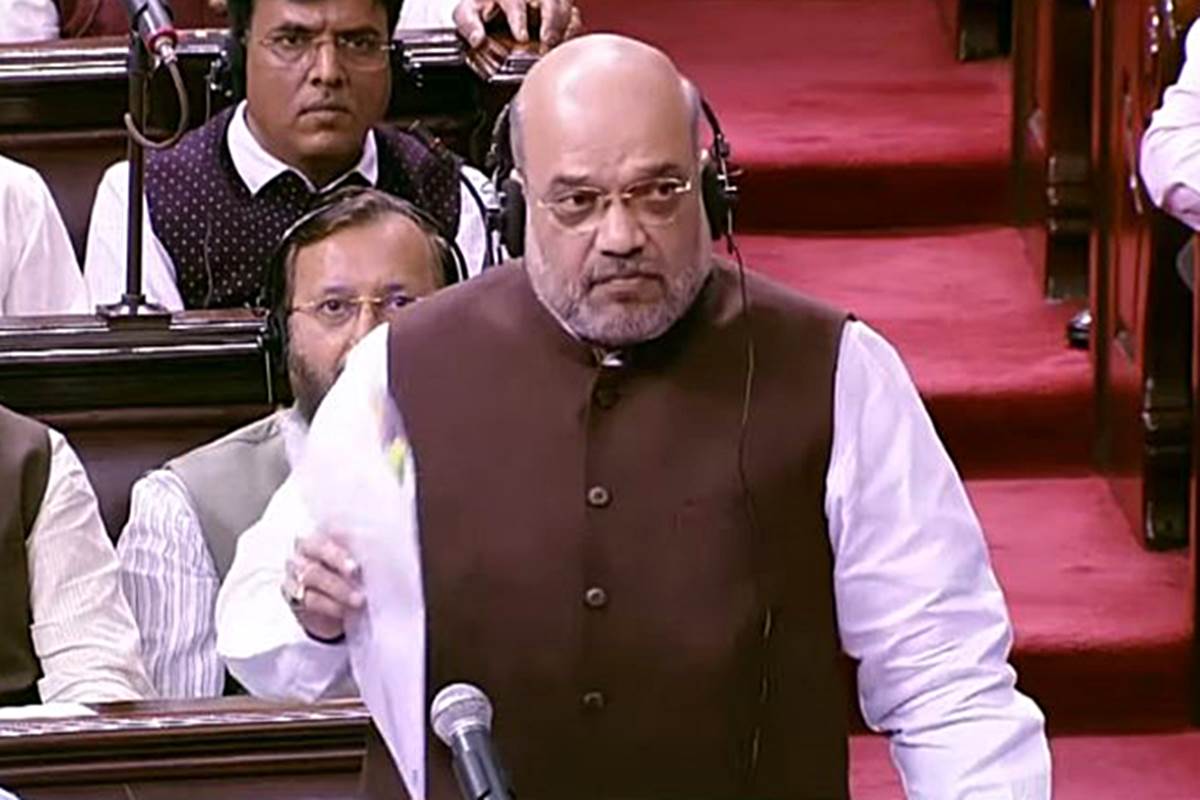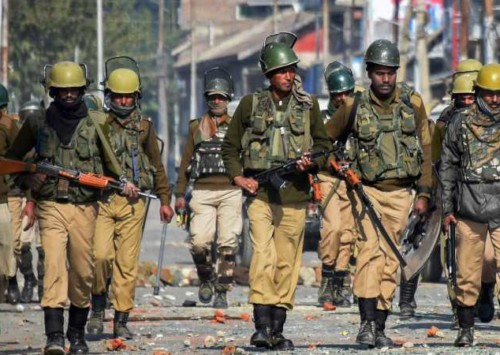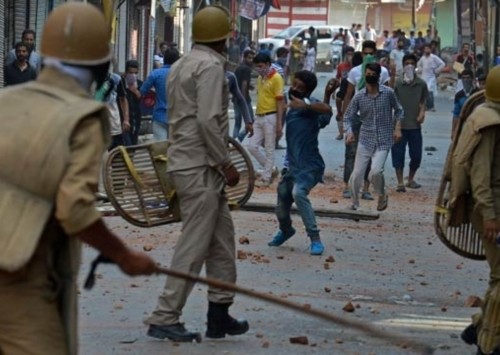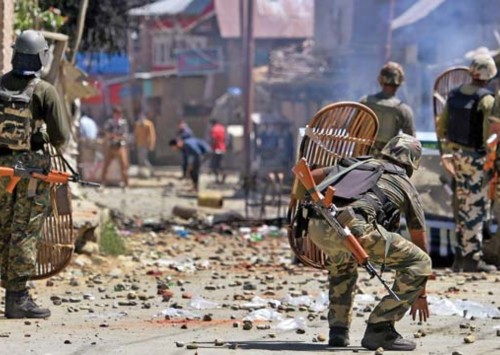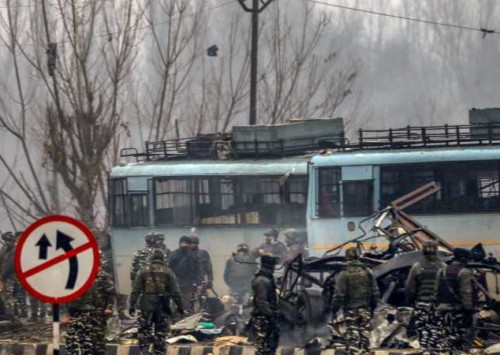A final solution for Kashmir conundrum
India has scrapped the special status to Jammu and Kashmir. Obvious question that emerges is does this decision have any internal, financial and external fallout?
Amid tension, a week-long drama involving additional troop mobilisation, tourist exodus in Kashmir Valley, the Modi government on Monday scrapped the controversial Article 370 of Indian Constitution that bestowed special status to Jammu and Kashmir.
No sooner, union home minister Amit Shah tabled his resolution in Rajya Sabha (Upper House) and President Ram Nath Kovind gave his assent to the notification.
While the Opposition parties criticised the move as a fatal legal error and a misadventure, Shah rode over his proposal and followed it up with a legislation bifurcating the Jammu and Kashmir state that has always been a global hotspot of terrorism.
In simple words, the Modi government has done two things. One-it has scrapped Article 370 which bestowed special privileges on the state and people of Kashmir. Second, the government has followed it up with a Jammu and Kashmir Reorganisation Bill, 2019 leading to bifurcation of the state. Jammu and Kashmir would be a Union Territory (UT) with a legislative assembly and the Buddhist-dominated Ladakh would be a UT without an assembly.
Why scrap Article 370?
This was the long-term and explicit goal promise of the ultra right nationalists- Rashtriya Swayemsevak Sangh (RSS) and Jan Sangh, the precursor of present day ruling dispensation Bharatiya Janata Party (BJP), to the nation over the last 70 years even as Kashmir was in a perpetual state of siege and turmoil. The move was both a statement of intent and ideology.
Article 370 gave Jammu and Kashmir its own constitution and decision-making rights for all matters barring defence, communications and foreign affairs. Also, it made it necessary for the Centre to get the state legislature’s approval for introducing any policies or constitutional powers to the state.
Union home minister Amit Shah said the government’s move will “end the bloodshed in Jammu and Kashmir”.
“Between 1989 and 2018, 41,849 people were killed in the state. They wouldn’t have lost their lives if Article 370 wasn’t there. Who would take the responsibility of their lives,” Shah asked, while responding to a day-long debate on the issue that split the political class in the middle.
Discriminatory
Justifying the move, Shah said Article 370 “prevented democracy to percolate” in the state and led “corruption to flourish” and “poverty to remain in villages”.
“It is against women, Dalit (Scheduled Caste) and adivasis (tribes). It is also the fountainhead of terrorism. It is time for Article 370 to go, to make the Valley free from terrorism,” he added.
Anti-development
Sources in the union home ministry argue that Kashmir is an economic powerhouse waiting to be unleashed. Article 370, was an impediment in restricting private or global investment into the state.
“If Indians (non-Kashmiris) cannot invest in land or property, how can manufacturing firms or multinational corporations? These might have provided jobs to the young people of Kashmir,” sources point out.
With scrapping of Article 370, Article 35 too became redundant. Consequently, every Indian irrespective of their domicile, will have access to education, employment and property rights in Jammu and Kashmir.
Will it be challenged?
What if the legality of the government’s decision is questioned in court? Former Lok Sabha secretary general PDT Acharya has pointed that proper procedures were not followed. Former vice chancellor of Jammu University Amitabh Mattoo in an article in The Hindu on December 6, 2013, had described: “Article 370 can be revoked only if a new Constituent Assembly of Jammu and Kashmir is convened and is willing to recommend its revocation.”
Possible global fallout
Once Kashmir will hit global headlines it will be a subject of intense debate in international fora. To begin with, Pakistan will be the first one to protest against the move. Forums such as the Organisation of Islamic Conference (OIC) and the United Nations High Commissioner for Human Rights may become active again.
But then it is India’s domestic matter and it is a sovereign nation what it does in its own boundaries.
However, India needs to be careful of global leaders who are itching to mediate on global problems. US President Donald Trump is only the latest in a longish list.
The question is what happens to the Pakistan Occupied Kashmir (PoK) with New Delhi’s new move. Will it dilute India’s claim over Gilgit and Baltistan that comprise PoK.
Secondly, what happens to the 5000 sq km of Jammu and Kashmir land ceded by Pakistan to China?
Foreign policy experts observe Article 370 refers to the relationship between the state of Jammu and Kashmir and the Union government in New Delhi. It is an internal arrangement between the two sides and does not dilute India’s claims over PoK.
With rising fear of unrest-former chief ministers of Jammu and Kashmir have been put under house arrest, internet and telephone connections have been suspended, thus casting Kashmir into an information black hole. Will it ignite unrest in one of the world’s most dangerous nuclear flashpoints? Or will it be subdued and forced to submit?

